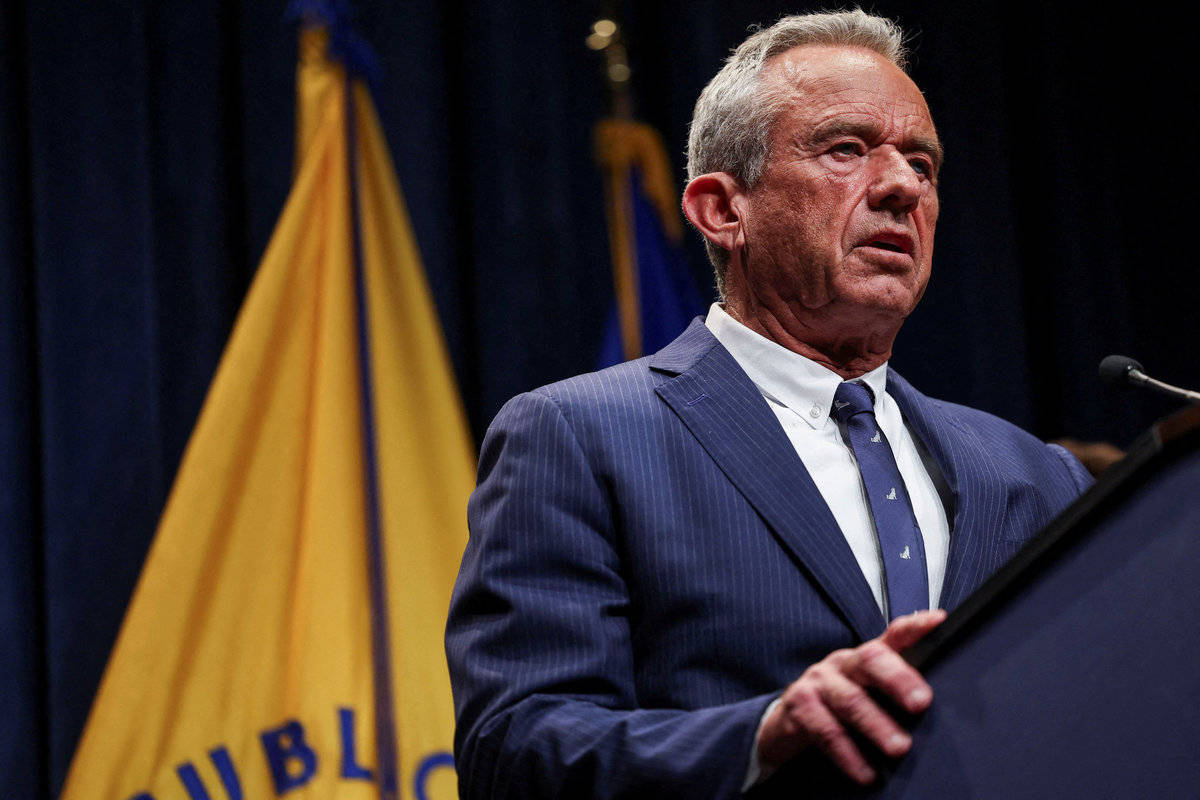**CHICAGO:** The first meeting of the newly reconstituted vaccine advisory panel led by U.S. Health Secretary Robert F. Kennedy Jr. has ignited significant discussions and raised eyebrows within the medical community. The panel’s primary focus is to evaluate the current schedule of childhood and adolescent immunizations, in addition to reviewing older vaccines—a move that suggests a notable shift in vaccine policy under Kennedy’s leadership.
Dissent is palpable among health experts and former government officials regarding the panel’s departure from established norms and procedures. Several vaccine advisers have pointed out that the reconstitution process may lack the scientific rigor and consensus typically associated with such advisory groups. In a notable protest, the influential American Academy of Pediatrics chose to boycott the meeting, indicating a stark disapproval of the procedural changes and the direction in which the advisory group is heading.
Kennedy’s recent overhaul involved firing all 17 members of the Centers for Disease Control and Prevention’s (CDC) vaccine advisory panel, replacing them with his own selections. This drastic change has resulted in at least two CDC staff departures and heightened concerns among major medical experts and former panel members about the newly shaped group’s potential biases and effectiveness.
In a striking move, Dr. Michael Ross, a recent appointee to the panel, unexpectedly withdrew his participation. This incident has further fueled criticism, particularly given that over half of the remaining seven members have expressed skepticism about vaccines. Their views may influence the future of immunization recommendations for U.S. children.
The implications of this panel’s outcomes carry significant weight. Recommendations made by the advisory group have a direct impact on the official U.S. immunization schedule, affect insurance coverage for vaccines, and guide the procurement for the CDC’s Vaccines for Children program. The stakes are high, as these recommendations shape public health responses to preventable diseases.
Dr. Martin Kulldorff, the committee chair, has publically stated that the panel will review the extensive vaccination schedule that U.S. children currently receive—pointing out that it exceeds the number given in other developed nations. Kulldorff indicated that a comprehensive evaluation would consider individual vaccines as well as their combined effects, addressing both the total number of vaccines and the timing of when they are administered.
One significant topic on the agenda focuses on the combined measles-mumps-rubella-varicella shot, along with research aimed at optimizing the timing of the measles-mumps-rubella (MMR) vaccine. This aspect of the discussion seeks to mitigate religious objections some parents have regarding vaccinations used in the U.S.
Another area of scrutiny is vaccines containing thimerosal, a preservative that has faced criticism from anti-vaccine advocates despite an overwhelming scientific consensus regarding its safety. Additionally, a scheduled vote on the administration of an RSV vaccine in children was unexpectedly postponed, adding to the meeting’s already tense atmosphere.
Typically, meetings of this nature involve months of preparation, comprehensive subcommittee discussions, and thorough reviews of scientific data before recommendations are made. However, the current process appears to diverge from these traditional protocols. The final meeting agenda was made available just a day before the meeting, with changes reflecting who would present on the contentious topic of thimerosal.
Lyn Redwood, a figure linked to the anti-vaccine movement and a former leader of Children’s Health Defense, is slated to lead the discussion on thimerosal. This choice has raised concerns, especially given that Redwood’s presentation previously included a flawed reference to a non-existent study—an issue that has since been rectified following media scrutiny.
Disruptions to standard procedures have left some experts questioning the integrity of this advisory panel. COVID-19 and influenza work group meetings were canceled, highlighting the disjointed nature of preparations leading up to the panel’s discussions. Dr. William Schaffner, an infectious disease expert involved in one of the work groups, insisted that normally, all materials and agenda items would be thoroughly vetted and presented well in advance, a practice that was seemingly abandoned in this case.
During the meeting, notable exchanges also took place, particularly when Dr. Tracy Beth Hoeg, a newly appointed FDA representative, challenged the reliability of data regarding the efficacy of COVID-19 vaccines. This line of questioning strayed from traditional roles for ex-officio participants, who typically refrain from posing questions during such discussions.
The atmosphere surrounding this meeting reveals a complex interplay of scientific inquiry, political influence, and public health priorities, raising essential questions about the future direction of immunization policies in the United States.


